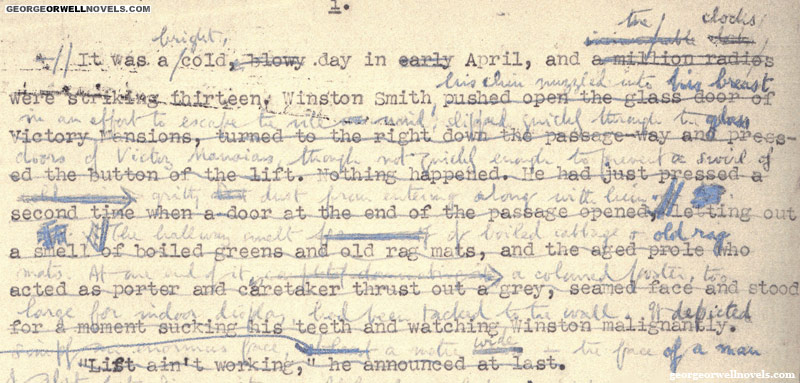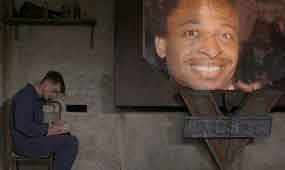
In The Guardian, Robert McCrum tells of a desperately sick George Orwell’s race against time to finish 1984. “In late October 1947, oppressed with ‘wretched health’, Orwell recognised that his novel was still ‘a most dreadful mess and about two-thirds of it will have to be retyped entirely’.” Orwell died in January 1950. (As seen as OpenCulture, who also point the way to these jpgs of Orwell’s original manuscript.)


